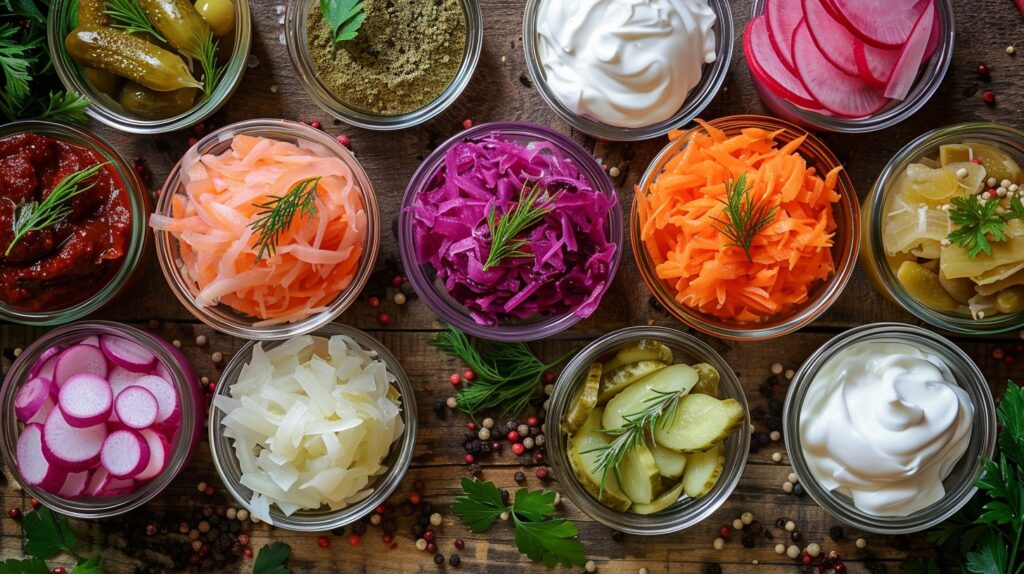You’ve probably heard that fiber and fermented foods are good for you, but have you ever wondered why? Let’s break it down in a way that makes sense.
Why Fiber and Fermented Foods Matter
When it comes to your diet, two big “F” words—fiber and fermented foods—are crucial for keeping your digestion on track and potentially boosting your overall health. But how do you make sure you’re getting enough of them? And what impact do they have on your gut and beyond?
The Role of Your Gut Microbiome
Your gut is home to a bustling community of bacteria, viruses, fungi, and other microorganisms—collectively known as the gut microbiome. What you eat, your environment, and even your lifestyle choices can shape this community. Think of it as a hidden organ that helps with everything from immune function to reducing inflammation and keeping your gut cells healthy. Plus, it might even influence your mood through the gut-brain connection. While it’s still unclear if changes in the microbiome directly cause mood disorders like depression or anxiety, we do know that a balanced diet can help keep your gut (and you) in good spirits.

Why Fiber is Important
Fiber does more than just keep you regular. It plays a key role in weight management, lowering bad cholesterol, and even reducing the risk of serious conditions like heart disease, type 2 diabetes, and certain cancers.
Getting the Right Kind of Fiber
There are two types of fiber: insoluble (which keeps you feeling full and helps with regular bowel movements) and soluble (which can lower cholesterol and blood sugar). But don’t stress too much about the types—focus on getting enough fiber overall.
If you’re new to high-fiber foods, ease into it slowly and drink plenty of water to help your digestive system adjust. Jumping in too fast can lead to bloating, gas, and cramps, but your body will adapt over time.
How Much Fiber Do You Need?
A good rule of thumb is 14 grams of fiber for every 1,000 calories you eat. But instead of getting caught up in numbers, just try to include more fiber-rich foods in your daily meals. Fruits, vegetables, legumes, nuts, seeds, and whole grains are all great sources.
What About Fiber Supplements?
If you’re struggling to get enough fiber from food alone, supplements can help. Just don’t rely on them as your main source of fiber.
Why Fermented Foods are a Big Deal
Fermented foods are packed with probiotics (the good bacteria) and prebiotics (ingredients that help those good bacteria thrive). They support your gut health, aid digestion, and help your immune system fend off infections.
Choosing Fermented Foods
Fermented foods come in many forms, from tangy yogurt to spicy kimchi. Each type offers different bacteria strains and nutrients like enzymes, B vitamins, and omega-3s. There’s no set amount you need to eat, so try to include them in your diet regularly.

What Are Some Good Fermented Food Options?
If you’re not into yogurt, no worries—there are plenty of other options. Try kimchi, sauerkraut, kombucha, or pickles. The key is to find what you enjoy and make it a regular part of your meals.

